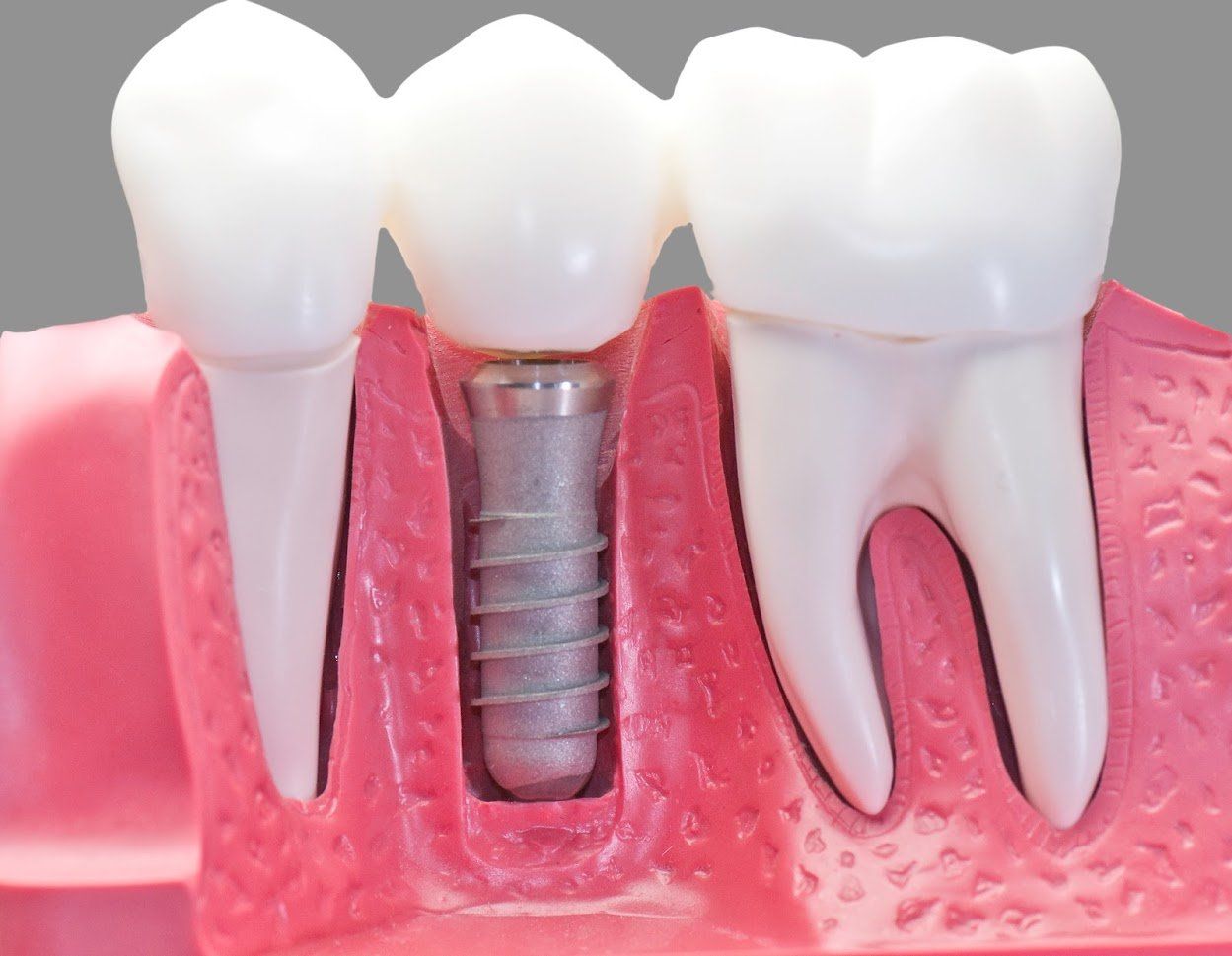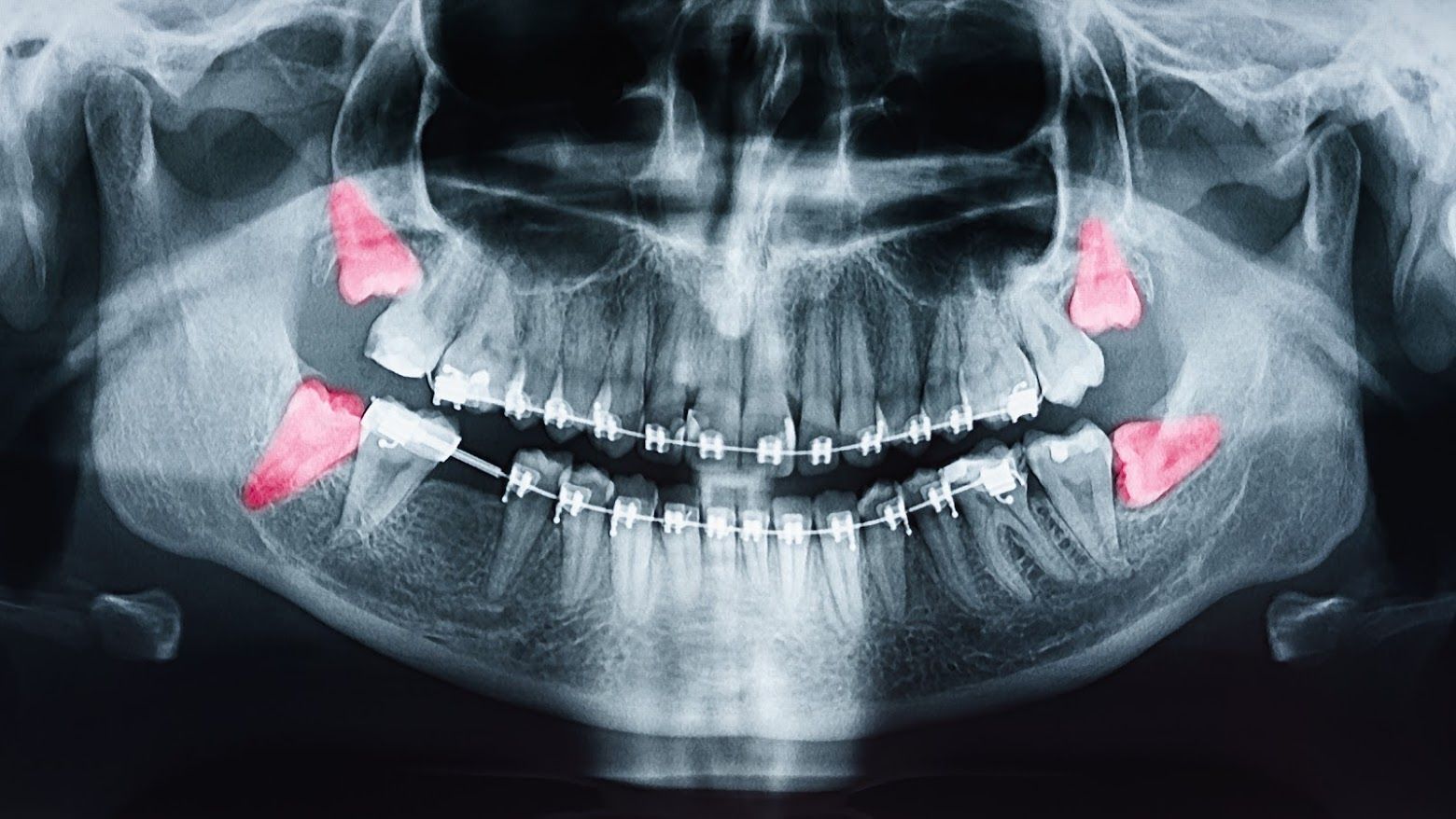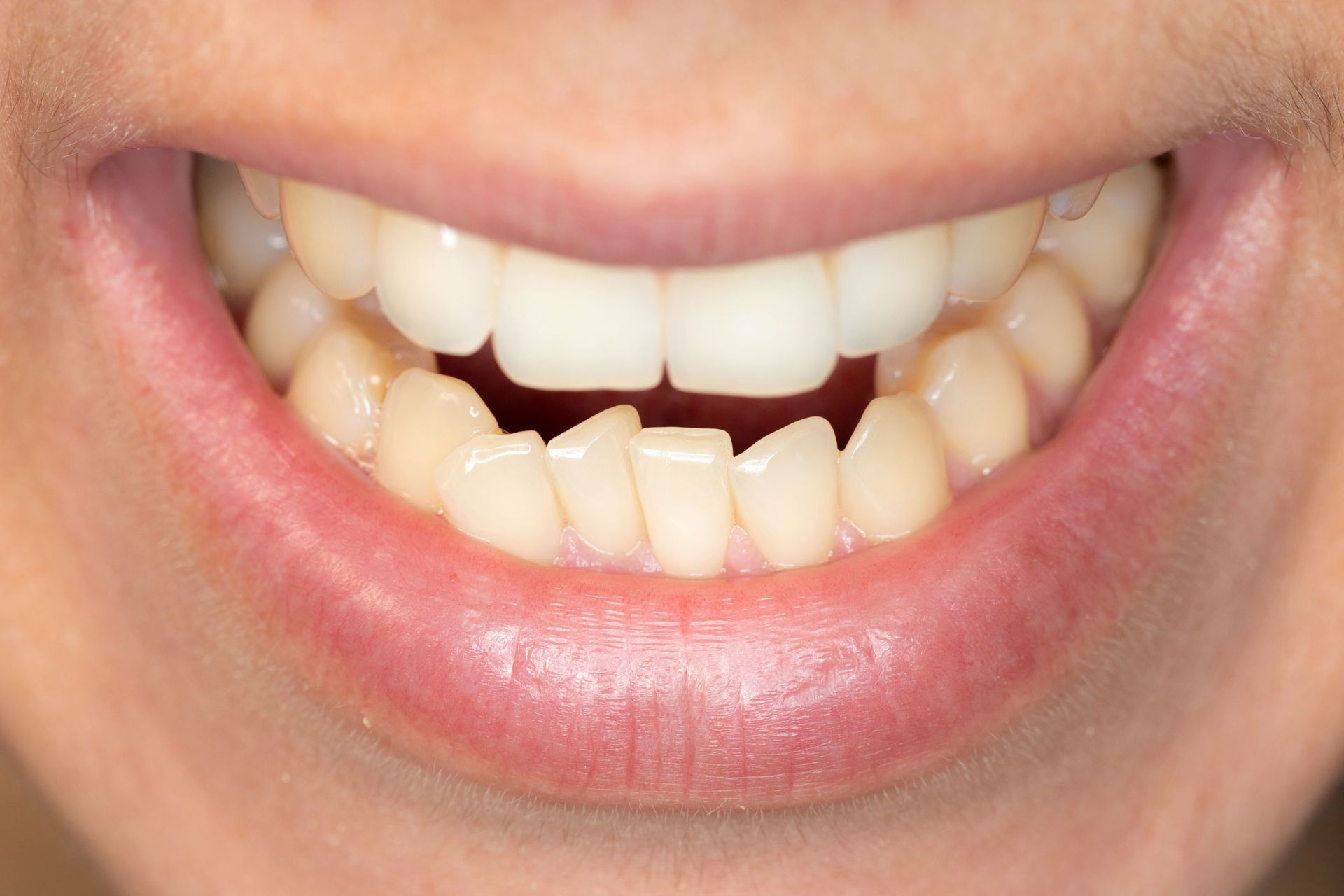Lancaster Office
Hershey Office
Lititz Office
Let Go of Your Fears Regarding Dental Implants

When was the last time fear kept you from doing something meaningful or necessary in your life? Has the decision of having a tooth replaced with a dental implant been one of those fear-motivated scenarios?
As a patient considering replacing a missing tooth, you are not the only one to feel apprehensive about the idea of dental implants. However, dental implants have a lot of benefits, and most of the fears related to implants are unfounded. This blogpost focuses on the myths regarding dental implants.
Won't the Surgery Hurt?
Dental implants are made of a titanium alloy and are often referred to as a “screw” that is placed in the jawbone. After several months of healing, this “screw” has a crown attached to it by your general dentist. Titanium is a material that is well-accepted by the body and is similar to the material that is used for patients that have orthopedic joint replacements. The procedure is often completed using local anesthesia (numbing injections) and is a relatively quick procedure that can be completed in less than 30 minutes. There is little down time after the procedure and most patients return to work the following day with minimal use of over-the-counter pain medications (Tylenol and Ibuprofen). An implant should not hurt or cause pain, and you should see your surgeon as soon as possible if that is the case.
Aren’t they really expensive?
Dental Implants are certainly an investment like most dental work. When you come in for your consultation at Conestoga Oral Surgery, you will have an implant consultation to discuss the procedure in detail and will be provided with a fee estimate that breaks down the cost in the various phases of treatment. Once the implant is fully integrated into the jawbone and is ready for a crown, the oral surgeon will send you back to your dentist for fabrication of a crown. Oftentimes, when a patient is concerned regarding the cost of the implant other treatments, such as a three unit fixed bridge, may be just as expensive. For this reason it is important to understand all various treatment options and consider the cost of each before making a final decision.
What If I Get an Infection?
Any physician or dentist is required to inform you of the risks associated with a procedure. Concerning implant surgery, while the risks are limited, infection will certainly be listed on your consent form. The risk of infection is very small and post-operative instructions will be provided to you to help reduce the risk of infection. Your oral surgeon’s aftercare protocol will likely include the following:
- Rinse the surgical site with salt water or prescribed mouth rinse daily for several weeks
- Avoid smoking as smoke/nicotine slows the healing process and increases the risk of post-operative infection; Smoking also affects the long-term health of an implant and this should be considered prior to implant placement
- Stick to soft, easy-to-chew foods and chew on the opposite side of the mouth for a week or two.
- Keep your mouth clean with routine brushing throughout the healing process
- If a healing abutment is placed, be sure to keep it pristine as plaque and calculus can accumulate at the surgical site just like with natural teeth
- Take all prescribed antibiotics as directed by your doctor
In the rare case that you do develop an infection after having an implant placed, call your doctor immediately to discuss. They may want you to return for post-op checkup to make sure things are OK.
My time is valuable. How long does this all take?
We live a in fast-paced world where people expect packages to arrive in two days and an entire meal can be prepared and delivered at the drive thru in minutes. Regarding implants, the entire process from start to finish usually takes 2-3 office visits with the oral surgeon. In addition, healing (osseointegration) of a dental implant takes time and unfortunately, biology cannot be rushed. In order to ensure that your implant lasts for a longtime, proper healing time is critical. While the integration and healing of the implant takes several months, you do not have to spend the entirety of that time in a recovery mode. While the implant is healing over the course of 2-4 months, the site should be kept clean. Discomfort will be minimal and patients can typically go back to work and resume light activity within 1-2 days. You will return to your oral surgeon prior to having a crown placed for a final check of the implant.
Doesn't Diabetes Make Implant Placement Impossible?
Some patients are afraid to even bring up the topic of implants to their dentist because they have heard people with diabetes are not candidates for dental implants. But while uncontrolled diabetes does slow the healing process and make patients more prone to infection, it does not automatically make you ineligible for dental implants.
Many patients with diabetes have had implants placed successfully. Strict glucose control is crucial not only during the implant placement process, but also for the life of the implant. Your oral surgeon will like contact your primary care physician to determine how well you are doing managing your diabetes. This usually involves obtaining an HbA1C, which is a snapshot of how well your diabetes has managed over the last three months. If this lab value indicates uncontrolled diabetes a delay in implant placement will be recommended.
Dental implants are far and above the best option for replacing missing teeth. They look and feel natural, and they do not put stress on the neighboring teeth like other tooth replacement options may. When properly cared for, they can last a long time and keep your smile looking its best.
Do not let fear stand between you and smile you deserve. Schedule an appointment with the expert oral surgeons at Conestoga Oral Surgery to learn more about the procedure and your candidacy. We are happy to help and go over any questions or concerns that you may have in one of our three convenient locations.
- Mon - Thu
- -
- Friday
- -
- Sat - Sun
- Closed














